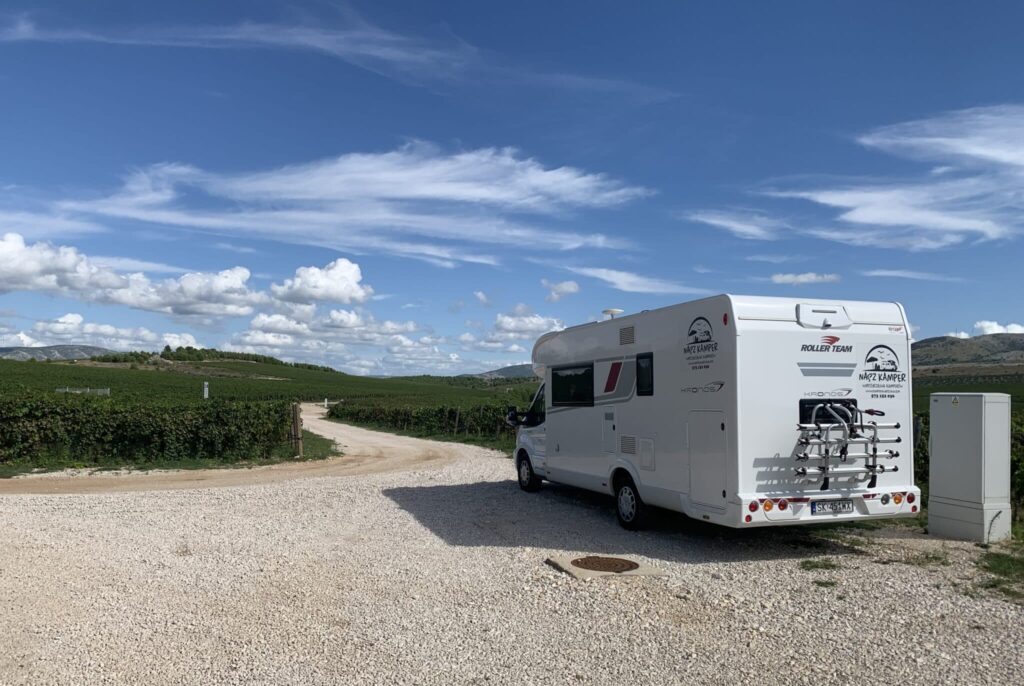The life stories of winemakers I usually visit tend to be quite similar. Either it’s a couple just starting their journey with winemaking, or it’s the next generation of a family with winemaking tradition. I’m also aware that there are large wine conglomerates producing millions of bottles annually, but I don’t visit those too often. However, during my visit to Testament Vinarija (Testament Winery) in northern Dalmatia, I encountered an ownership structure that was totally new to me in this industry.
In an area dominated by small, family-run wineries, we were greeted in Testament’s simple tasting building by a Scottish woman. As if that wasn’t surprising enough, she explained that the winery is financed by a Swedish investment fund. She herself lives in Stockholm and only comes to Croatia during the summer season. The local winemaker overseeing the Testament, Juraj Sladić, brings a Croatian touch to this international venture. I was also intrigued by the choice of the winery’s name. The most straightforward approach would have been to follow the local tradition and name the winery after the head winemaker. However, that privilege had already been claimed by Juraj’s brother, who runs his own family business. So, the Swedes opted for their own branding. Their marketing consultants came up with a story to back it up, but let’s not focus on that.
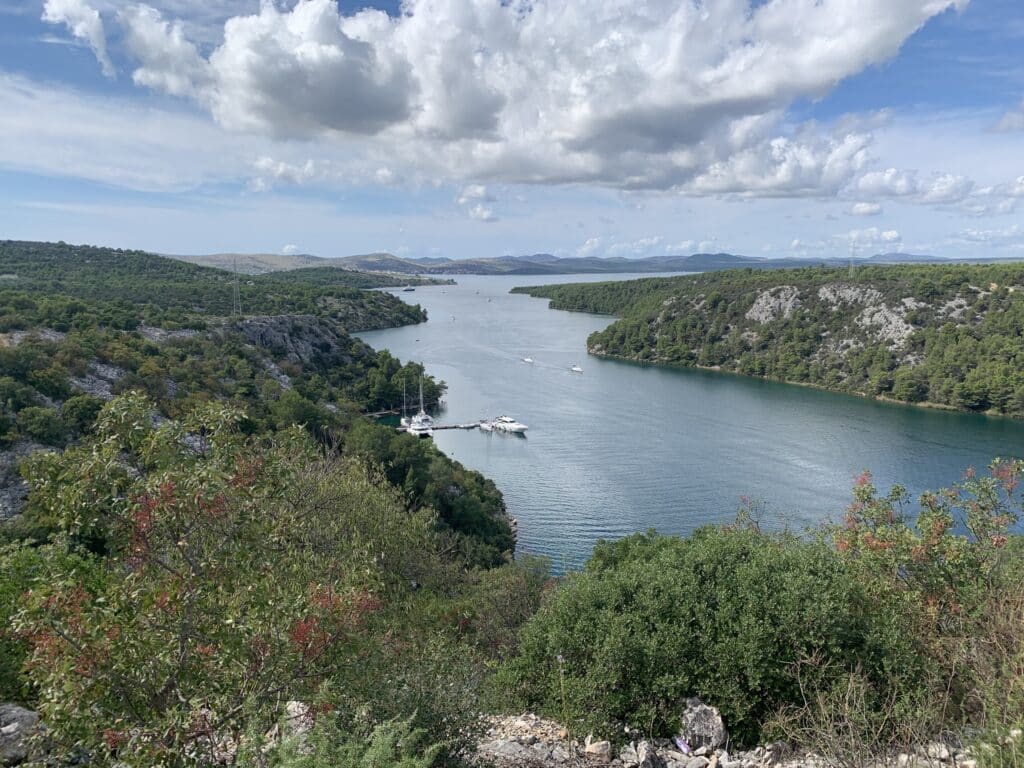
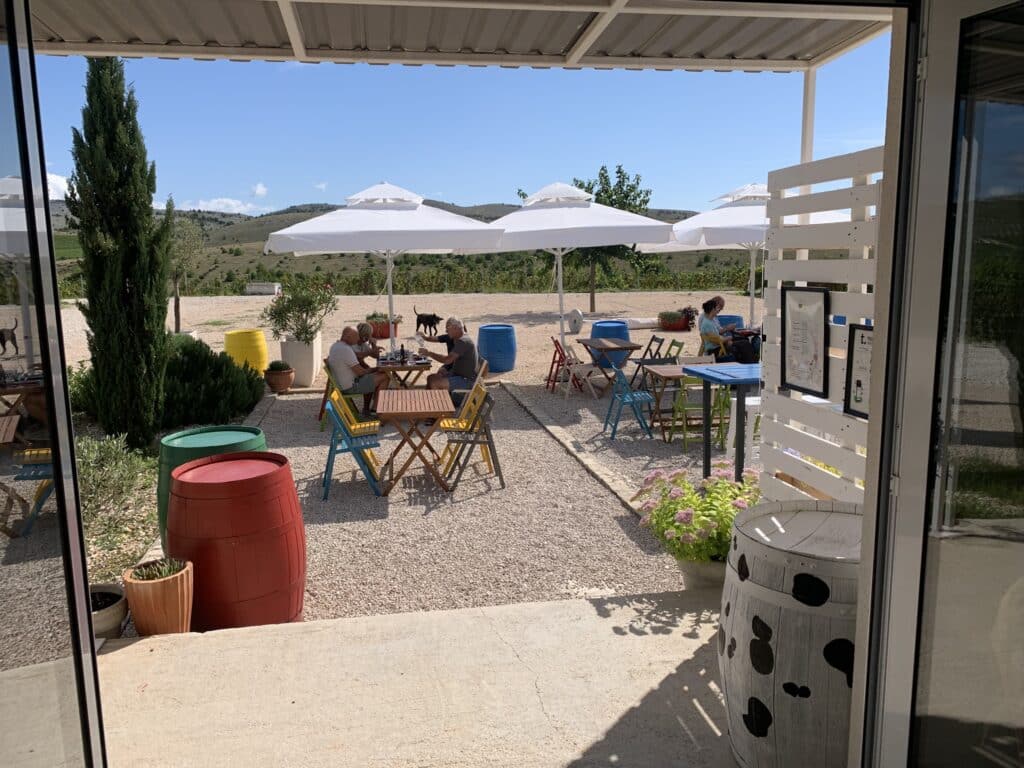
A small, country road led to the shop and tasting bar. Testament Winery is beautifully situated among vineyards and gently rolling hills in the background. Once there, you can taste three wines for €11, five for €22, or pay some more for a snack pairing. With our group of six, we decided it would be more economical to buy all the wines and create our own tasting session. That’s exactly what I explained to the Scottish lady. However, she handled it very professionally, offering to tell us a bit about the winery and its wines and offered for us to sample a few so we wouldn’t be buying completely unconsciously. Our compromise was to taste the most expensive wines (€25–€45) to decide if they were worth the investment. The cheaper ones we purchased confidently without trying them at all.
Let’s start with the simplest (and cheapest) wines:
Dalmatian Dog Babić 2021 – It was rather simple and perhaps a bit unbalanced. Dominated by red fruit with lots of acidity. The aroma was slightly off-putting, but improved over time (or perhaps by that time the alcohol was kicking in?). Dalmatian Dog Plavac Mali was similarly unremarkable.

Testament Babić 2021 – A very decent wine. Complex and nuanced, it quickly made me consider taking a few bottles home. Notes of oak, tobacco, plum, and blackcurrant. Still quite fresh, making it enjoyable to drink on its own.

Merga Victa Plavac – A wine from a sister winery owned by the same company, located on the famous island of Korčula. It had the most distinctive chocolate-vanilla flavour I’ve ever encountered. Interesting, but slightly overwhelming because of this single flavour note.
Testament Plavac Mali 2018 – This wine benefited from some time in the bottle and was at its peak. It probably still has a good 2–3 years before it starts to decline. Big and powerful, with lots of black fruit notes, ripe blackberries, plums, and rounded tannins.

Testament Tribidrag 2021 – Definitely not ready yet, with lots of fresh acidity and herbaceous notes. However, you could sense the potential for power, complexity, and nuance. It will be interesting to see how it evolves in 3–5 years.

We didn’t try any white wines, which was probably a big mistake. At the Peškafondo wine bar in the nearby Primošten (which I also highly recommend!) we drank an exquisite Pošip. However, I respect them for their exclusive use of native grape varieties. Babić, the dominant grape in the region, indeed produces some very pleasant wines. The only downside was that the local wines were quite expensive in restaurants. It’s strange – in Spain, you can get house wine for €8, but in Croatia you have to pay over €20. Croatian wines are also relatively little known in Poland, even though Poles take over the Croatian seaside every summer. It’s hard to say why this is the case, but hopefully, the Croatian wine market in Poland will pick up soon.
Testament Winery: https://www.testament-winery.com/en/
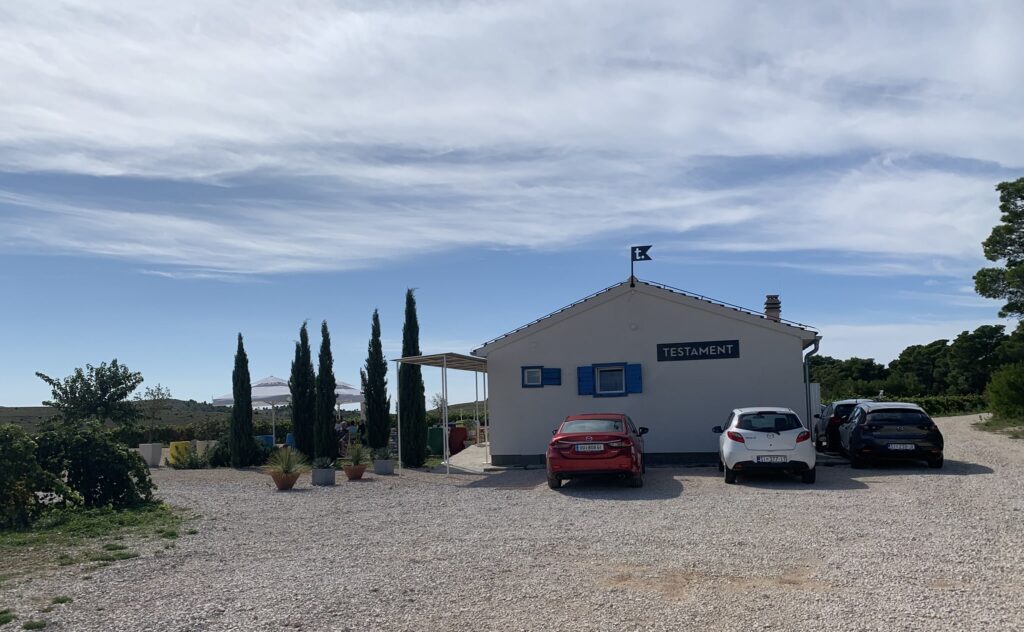
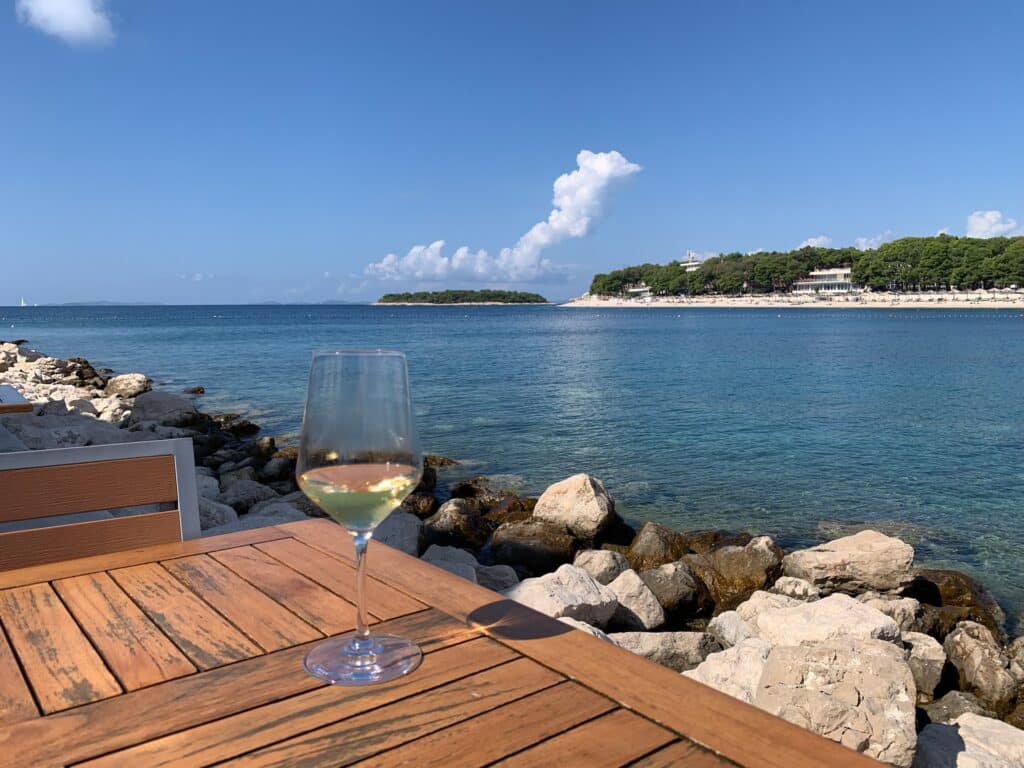
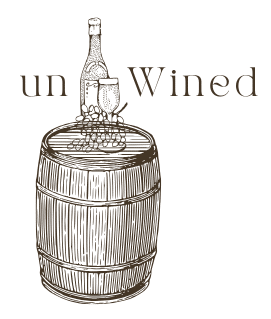
Więcej nieWinnych Podróży wprost na Twoją skrzynkę? Zapisz się!

